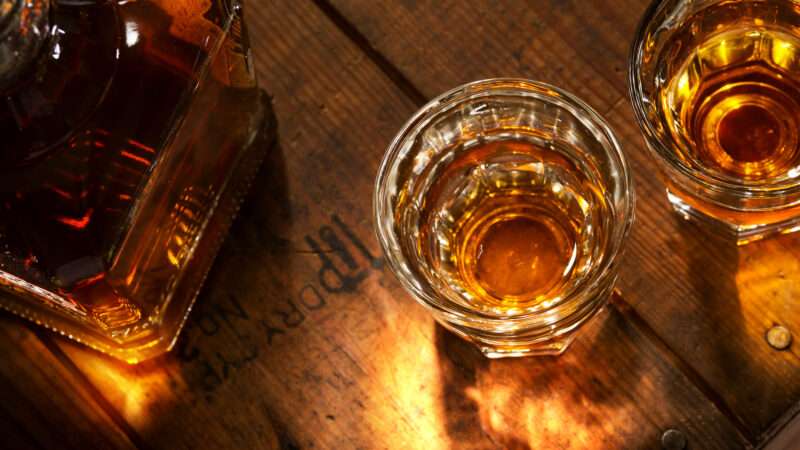
The Washington Post and others recently broke the story of an inside job at the Virginia Alcoholic Beverage Control Authority (ABC), involving the sale of highly sought-after and rare bourbons. In turn, the agency was unwittingly inflaming a robust black market in secondary whiskey sales among local whiskey collectors.
It all started when a copy of a draft press release from Virginia ABC was apparently leaked. The release stated that the agency was revamping how it would distribute and sell limited-release or rare bourbons in its stores. Instead of these desired bottles being scattered to random state-run stores around the commonwealth on random days, the products would only be sold on Wednesdays. New limits were also to be placed on how many bottles of these so-called "allocated products" a single customer could purchase.
While this unofficial announcement caused some confusion at the time, the reason for it is now clear: Virginia ABC was in the throes of detangling a massive inside job.
The contours of the scheme were simple enough. A former Virginia ABC employee was able to maintain access to the distribution list for when and where valuable bottles of bourbon were being sold in the state-run stores. A private Facebook group was started—with a $300 buy-in fee—in which the ex-employee would tip off whiskey aficionados to what stores the bottles would show up in and on what day they would be there. Then, the buyers just had to drive to the right store at the right time, purchase the desired whiskey at the state-determined price, and walk out.
To see why this scheme could be lucrative for everyone involved, it's important to understand the "bourbon bubble" that has gripped America over the past few years. Whiskey sales have doubled in the past decade, and top-shelf brands have enjoyed a particular surge. While secondary liquor sales are technically illegal in the United States, a booming black market has taken hold, with flippers making tens of thousands of dollars a year in illicit sales.
Given this dynamic, it's fairly easy to bet that many of the buyers who purchased these valuable bottles from Virginia ABC stores at state-set prices turned around and made a handsome profit by reselling them. Although it was perhaps slow in reacting, Virginia ABC finally managed to get to the bottom of what was happening in the scheme, and now those involved are being prosecuted.
But other than targeting specific individuals and re-working the way in which sought-after bourbon is sold at ABC stores around the state, how should policy makers and industry stakeholders respond to this latest humiliation involving government-controlled liquor sales?
In one sense, the rare bourbon market labors under some inherent structural realities that are not readily fixable overnight. After all, it is a yearslong—sometimes decadeslong—process to produce well-aged whiskey, which means that distillers cannot simply ramp up supply overnight to deflate the bourbon bubble.
But there are ways to help the situation. First and most obviously, this scandal should be seen as yet another reason why allowing the government to be in the business of selling private goods is a bad idea. The very features of Virginia's government-controlled liquor system provided all the ingredients necessary for such a scheme to take place.
Namely, the state strictly regulates the price of liquor while at the same time having absolute control over what stores get what products. This centralized system of liquor distribution inherently places highly valuable information in the hands of a small cadre of government employees. The potential to misuse this information for undue gain is enormous.
In contrast, a decentralized and private market makes these types of abuses much less lucrative. Different owners operate different stores, and they have more ability to adjust prices for their products to respond to the level of demand for rare bottles.
Of course, if a liquor store wants to inform select customers secretly ahead of time about when certain valuable bottles will arrive, that's their prerogative. But if it angers other customers who are not privy to this information, those customers can just take their business elsewhere. In contrast, one cannot effectively boycott Virginia ABC—it has a monopoly on all liquor sales in the commonwealth.
The second takeaway is equally straightforward. There is no compelling reason why secondary liquor sales should be illegal. As the experience of Prohibition itself attests, the best way to take the air out of a black market is to make it a white market. If secondary whiskey sales were allowed to take place above board, it would create more equalized access to products.
While some opponents might fret that secondary alcohol sales could be dangerous, the reality is that we allow all types of consumable food and drink products to be resold, with little in the way of negative repercussions. Furthermore, given that liquor bottles come in tamper-proof packaging—with sealed caps or corks—reselling liquor is in many ways safer than selling products like pastries at the neighborhood bake sale.
To date, much of the media focus has been on how Virginia ABC was finally able to nab the individuals involved in this scandal. A more valuable endeavor, in the long term, would be to open our liquor markets to let them function like other industries.
The post Open Virginia's Whiskey Market appeared first on Reason.com.







